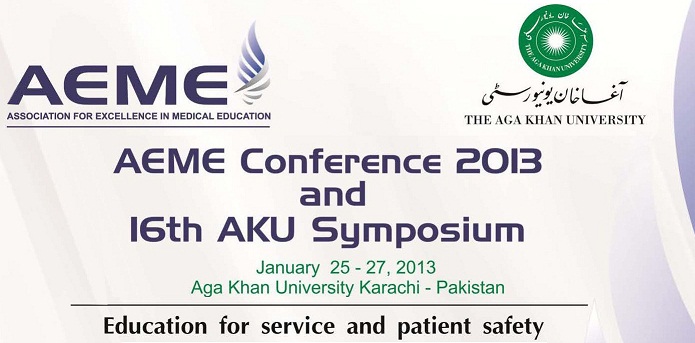Day 2 : Poster Presentations (Theme: Evaluation & Assessment)
Media: imposing harmful effects on children
Location
Auditorium Pond Side
Start Date
27-1-2013 8:30 AM
Abstract
Objectives: (i) To assess the detrimental effects of media on children’s behavior and on their psychology. (ii) To evaluate the effects of excessive media usage on children’s cognitive abilities. Introduction: Modern media has changed the youth now as in olden days, open play grounds provided a healthy environment for children’s growth and development whereas now media has taken advantage due to children’s attraction towards its audio-visual technologies. Now a days. children get exposed to media sources even from their mother’s lap. During the childhood, children’s brain development occurs and is highly affected due to excessive screen time. According to literature, children’s behaviors, psychology and cognitive abilities are extremely affected due to excessive media portrayals. Methods: We used questionnaire as a tool for this study. The purpose of using the questionnaire was to test the hypothesis whether children have psychological, cognitive and behavioral impacts due to heavy media usage. Purposive sampling was used and 50 mothers including 25 non working mothers and 25 working mothers were selected. A written consent was taken from the voluntarily participants prior to study. Results: “Children try to copy whatever they watch in cartoons, which means cartoon channels are (i) Behavioral: successful in promoting … culture and religion” (Anis, Ashfaq, & Mujtaba, 2012, p. 89). Hence, it proves that behavioral changes occur due to media portrayals. (ii) Cognitive: To prevent from attention problems, television usage should be maximum two hours each day. (Landhuis, Poulton, Welch, & Hancox, 2007, p. 536). According to literature, watching television in childhood have long term effects on attention span and memory. (iii) Psychological Almost all mothers stated that their children feel distressed, have sleep disturbances and get nightmares after playing video games and watching television. Hence, almost all children are psychologically affected due to media portrayals. Conclusions: In the nutshell, media puts very dreadful effects on children and when we see it from a public-health perspective, there is evidence that it leads to negative effects on children’s psychology, cognition and on behavior. Many international researches are done on this aspect and this study also highlights the negative impacts of media on children. Parents are the role models for children and they have a vital responsibility to supervise and monitor children’s screen time to reduce the detrimental effects of media portrayal. Key words: media negative impact children
Media: imposing harmful effects on children
Auditorium Pond Side
Objectives: (i) To assess the detrimental effects of media on children’s behavior and on their psychology. (ii) To evaluate the effects of excessive media usage on children’s cognitive abilities. Introduction: Modern media has changed the youth now as in olden days, open play grounds provided a healthy environment for children’s growth and development whereas now media has taken advantage due to children’s attraction towards its audio-visual technologies. Now a days. children get exposed to media sources even from their mother’s lap. During the childhood, children’s brain development occurs and is highly affected due to excessive screen time. According to literature, children’s behaviors, psychology and cognitive abilities are extremely affected due to excessive media portrayals. Methods: We used questionnaire as a tool for this study. The purpose of using the questionnaire was to test the hypothesis whether children have psychological, cognitive and behavioral impacts due to heavy media usage. Purposive sampling was used and 50 mothers including 25 non working mothers and 25 working mothers were selected. A written consent was taken from the voluntarily participants prior to study. Results: “Children try to copy whatever they watch in cartoons, which means cartoon channels are (i) Behavioral: successful in promoting … culture and religion” (Anis, Ashfaq, & Mujtaba, 2012, p. 89). Hence, it proves that behavioral changes occur due to media portrayals. (ii) Cognitive: To prevent from attention problems, television usage should be maximum two hours each day. (Landhuis, Poulton, Welch, & Hancox, 2007, p. 536). According to literature, watching television in childhood have long term effects on attention span and memory. (iii) Psychological Almost all mothers stated that their children feel distressed, have sleep disturbances and get nightmares after playing video games and watching television. Hence, almost all children are psychologically affected due to media portrayals. Conclusions: In the nutshell, media puts very dreadful effects on children and when we see it from a public-health perspective, there is evidence that it leads to negative effects on children’s psychology, cognition and on behavior. Many international researches are done on this aspect and this study also highlights the negative impacts of media on children. Parents are the role models for children and they have a vital responsibility to supervise and monitor children’s screen time to reduce the detrimental effects of media portrayal. Key words: media negative impact children

